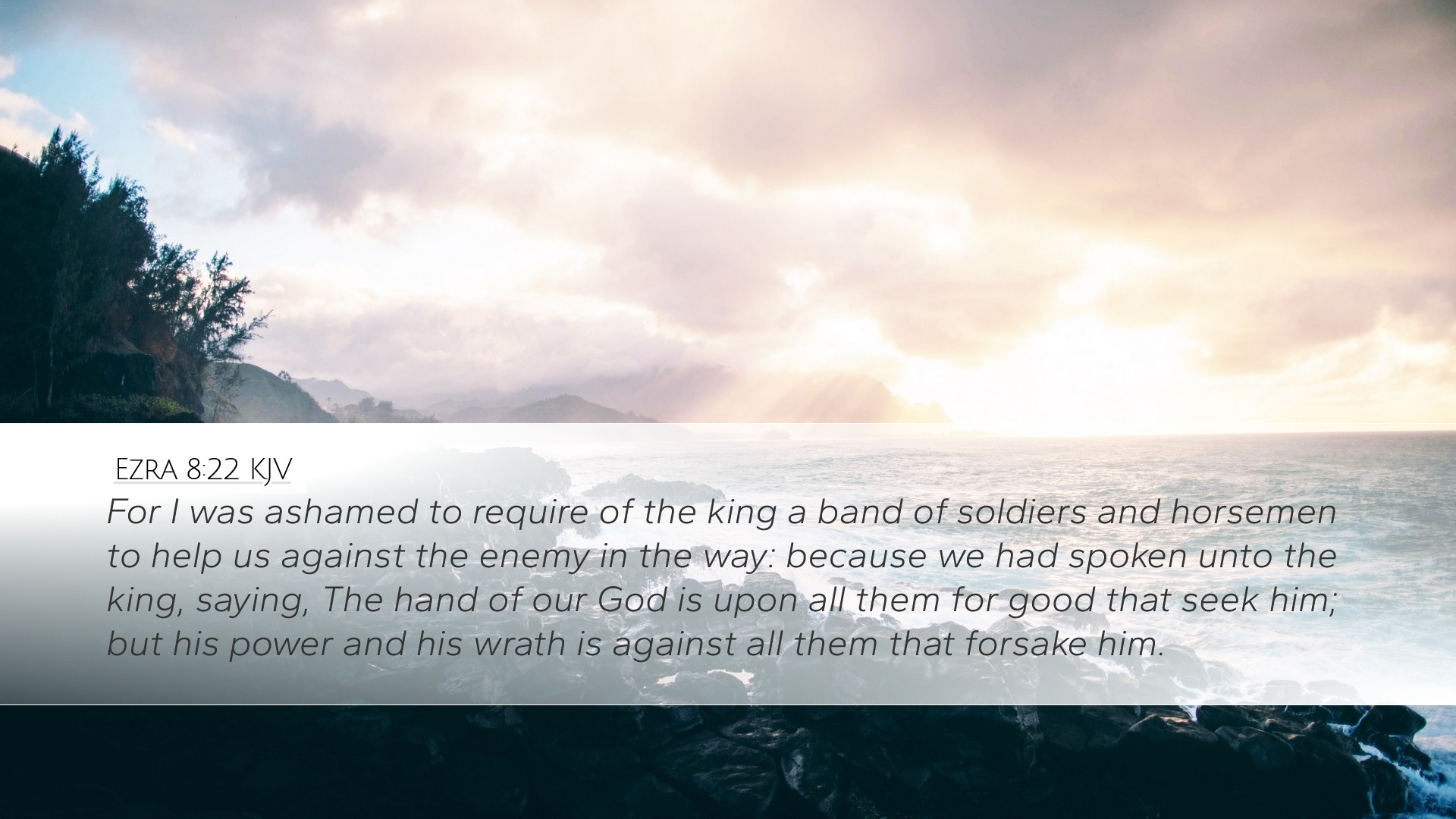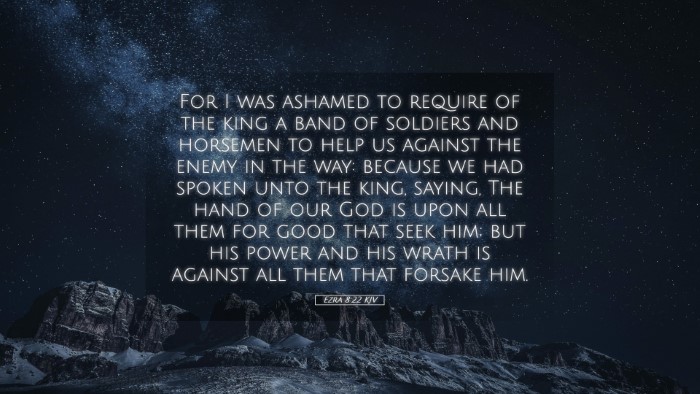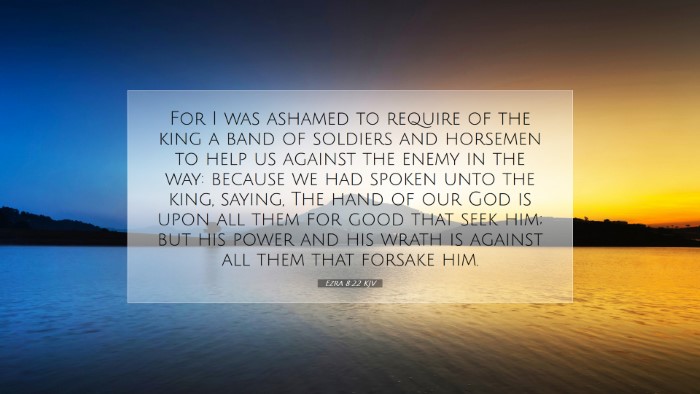Commentary on Ezra 8:22
Ezra 8:22 states, "For I was ashamed to require of the king a band of soldiers and horsemen to help us against the enemy in the way: because we had spoken unto the king, saying, The hand of our God is upon all them for good that seek him; but his power and his wrath is against all them that forsake him."
Introduction
This verse captures a moment of profound trust in God amidst challenges. Ezra's reluctance to ask the king for military support illustrates his commitment to relying on divine providence rather than human strength. The reflections drawn from public domain commentaries shed light on the theological and practical implications of Ezra's decision.
Theological Insights
- Divine Providence vs Human Alliance: Matthew Henry emphasizes the dichotomy between divine assistance and worldly alliances. Ezra's faith is illustrated by his refusal to seek military aid, believing that God’s hand would be sufficient for their protection and success.
- Shame and Boldness: Albert Barnes comments on the aspect of shame Ezra felt. His acknowledgment of God’s promise made it difficult for him to request human help. This reflects a deeper faith that values God’s reputation over personal security.
- God’s Favor: Adam Clarke brings attention to the nature of God's care for those who seek Him. Ezra’s statement indicates the belief that God's providence would outshine any earthly power. Clarke suggests this serves as a reminder for believers to trust in God's ability to protect and provide.
Contextual Analysis
The historical context of this passage is significant. The Israelites were returning from Babylonian exile, facing numerous adversities. Ezra’s mission was not merely to restore physical worship but to reinvigorate the spiritual commitment of the people. By relying solely on God, Ezra sets a precedent for leadership and faith.
Historical Background
- The Return from Exile: Ezra's leadership was crucial in re-establishing the Jewish community in Jerusalem after decades of exile. The threat of opposition was real, given their fragile state as a returning community.
- Previous Appeals to Authority: Prior to Ezra's appeal to the king for resources, there were instances where reliance on human authority led to negative outcomes. This historical lesson shapes Ezra's response as one of cautious faith.
Personal Application
Pastors, theologians, and students studying this passage can draw parallels between Ezra’s experience and contemporary faith journeys. Reliance on God, especially in challenging situations, is a cornerstone of Christian belief.
- Trust Over Anxiety: Ezra’s confidence can inspire modern believers to forgo anxiety in favor of prayer and trust in God’s wisdom.
- Integrity in Leadership: Leaders today can learn from Ezra’s example of maintaining integrity in their convictions, even when faced with pressure to seek shortcuts to security.
- Witness of Faith: The public declaration of faith in God’s support serves as a powerful witness in a world often reliant on tangible solutions.
Conclusion
Ezra 8:22 is more than a historical account; it is a profound statement about faith, trust, and integrity in the face of adversity. The commentary from Matthew Henry, Albert Barnes, and Adam Clarke provides a rich exploration of these themes, enabling pastors and scholars alike to engage meaningfully with this text. As readers consider this verse, they are challenged to reflect on their own reliance on God versus worldly means and to encourage their communities to seek the hand of God in all endeavors.


